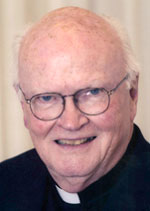In America, we all too often tend to substitute blame for analysis.
Since Republican Eric Cantor’s recent stunning defeat in his primary election bid to hold his U.S. House of Representatives seat in Virginia’s 7th Congressional District, the blame has been spread around in all directions. Analysis, however, has been somewhat thin and often contradictory.
He was the second-most powerful member of the House and widely expected to soon succeed John Boehner as speaker of the House.
Voter turnout was too low, some say; others argue that if the turnout of registered voters had been higher, Cantor would still have lost. Had the turnout been higher, I suspect Cantor would have won. Incumbents usually do.
[hotblock]
In Virginia, a registered voter of one party can vote in another party’s primary. Some say Democrats voted for Cantor’s not-well-known and underfunded opponent — a tea party Republican — in order to topple the majority leader (not knowing, of course, who will succeed Cantor in that leadership position). Cantor’s defeat was a political earthquake. The aftershocks have yet to be felt.
In the primary that took Cantor down, 65,022 people voted. Cantor got only 28,898 of those votes. Many more, 474,714, according to The Washington Post, were registered to vote but simply chose not to vote.
Regardless of your party affiliation or, in this case, your preference for a given candidate — David Brat, the economics professor who won, or the seasoned incumbent who lost — the fact that only about 14 percent of those who could have voted actually did so has to give you pause. Democracy depends on participation. If voters don’t vote, democracy won’t work.
Those who want to do something to preserve democracy can make an enormous contribution by simply voting and then helping to get out the vote by encouraging others to vote. A well-organized minority can win elections by getting out the vote. And that minority may or may not have the best interest of all in mind.
The principle of participation is an underappreciated principle of Catholic social teaching. It is often thought of in terms of the right to join trade unions. It respects another’s right not to be ignored on the job or shut out from decision making within the organization, particularly from decisions that affect wages and working conditions and career advancement.
But the principle of participation also relates to a citizen’s duty to take part in the political process by voting, not necessarily by running for office, but simply voting others in or out of office in a representative government.
We call that form of government a democracy, and it simply won’t work if citizens do not participate. Hence the concern all of us should have with low-voter turnout.
I think we are nearing a crisis point in America in our refusal to participate by voting in local, state and national elections. At all three levels, our participation rates are alarmingly low. We are paying for it in the poor quality of candidates running for office, in political gridlock, particularly in Washington, and in ineffective governance at all levels.
This need not be the case. It could change for the better if more of us simply decided to vote.
***
Jesuit Father Byron is university professor of business and society at St. Joseph’s University, Philadelphia. Email: wbyron@sju.edu.
PREVIOUS: Solution to climate change lies more in selflessness than science
NEXT: Get angry, but get moving, too




Share this story